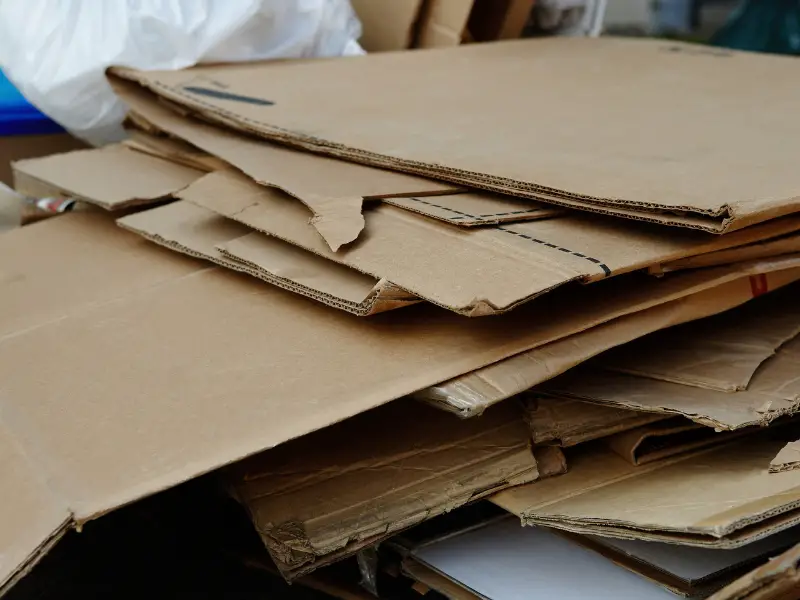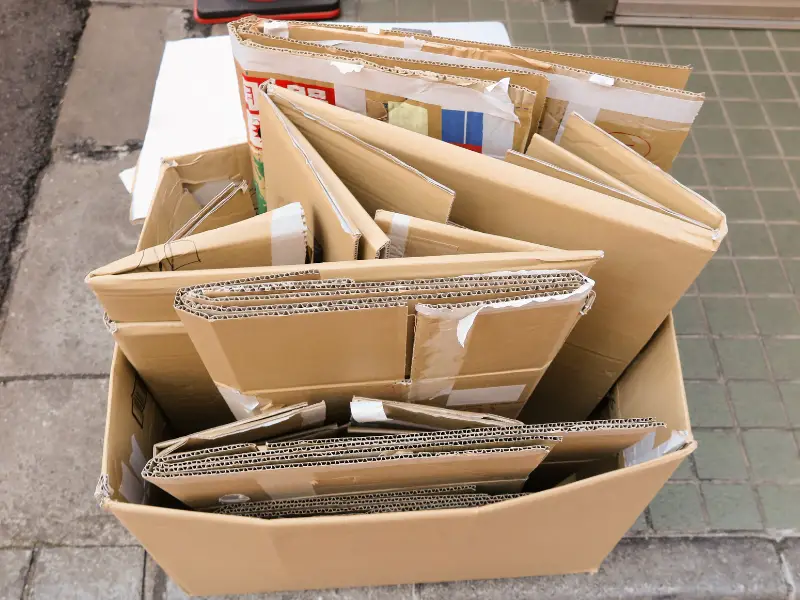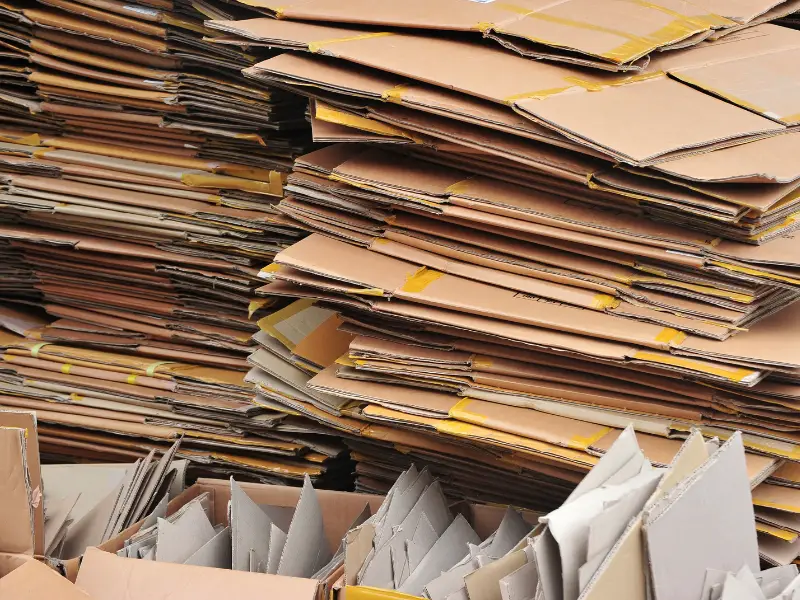Rabbits are known for their love of chewing on anything they can get their teeth on. This can include cardboard boxes, paper, and other objects that are not necessarily food. However, the question arises: can rabbits eat cardboard? The answer is not as straightforward as one might think.
While cardboard is not toxic to rabbits, it is not recommended as a regular part of their diet. Rabbits require a diet that is high in fiber, and cardboard does not provide the necessary nutrients. In addition, the ink and glue used in cardboard boxes can be harmful to rabbits if ingested in large quantities. Therefore, while a small amount of cardboard may not harm a rabbit, it is best to avoid giving it to them as a snack.
It is important to note that rabbits should not be given access to cardboard boxes or other objects that they can chew on if they contain any harmful substances. This includes boxes that have been treated with pesticides or other chemicals. It is recommended to provide rabbits with safe chew toys made specifically for them, such as untreated wood or hay cubes, to satisfy their chewing instincts.
Why do rabbits like to chew on cardboard?

Rabbits have a natural urge to chew on things, and cardboard is one of their favorite things to chew on. There are several reasons why rabbits like to chew on cardboard:
1. Dental health
Rabbits have teeth that grow continuously throughout their lives, and they need to wear them down to prevent them from becoming too long. Chewing on cardboard is an excellent way for rabbits to keep their teeth in good condition.
2. Mental stimulation
Rabbits are intelligent animals that need mental stimulation to stay happy and healthy. Chewing on cardboard provides rabbits with a fun and engaging activity that can keep them entertained for hours.
3. Nutritional value
While cardboard itself is not nutritious, rabbits may be attracted to the glue or ink used to make cardboard boxes. However, it’s important to note that these substances are not healthy for rabbits and should be avoided.
4. Comfort
Finally, some rabbits may simply enjoy the texture of cardboard and find it comforting to chew on. This is especially true for rabbits that are teething or experiencing other dental issues.
Overall, rabbits like to chew on cardboard for a variety of reasons, including dental health, mental stimulation, and comfort. However, it’s important to ensure that rabbits have access to safe and healthy chew toys to prevent them from ingesting harmful substances.
What Happens if a Rabbit Eats Cardboard?

Rabbits are known to be curious creatures that love to explore their surroundings by chewing on things. Cardboard is one of the items that rabbits may come across and decide to nibble on. While cardboard may seem harmless, it is important to understand the potential consequences of a rabbit eating cardboard.
Digestive Issues
Cardboard is not a natural part of a rabbit’s diet and can cause digestive issues if consumed in large quantities. Rabbits have a sensitive digestive system that is not designed to break down non-food items like cardboard. When a rabbit ingests cardboard, it can cause blockages in the digestive tract, leading to potentially life-threatening conditions like GI stasis.
Nutritional Deficiencies
Eating cardboard can also lead to nutritional deficiencies in rabbits. Cardboard contains no nutritional value and can displace other essential items in a rabbit’s diet. If a rabbit fills up on cardboard, they may not eat enough of their regular food, leading to deficiencies in important nutrients like fiber, protein, and vitamins.
Dental Problems
Chewing on cardboard can also lead to dental problems in rabbits. Cardboard is not as tough as hay or grass, which are the natural items rabbits should be chewing on to help wear down their constantly growing teeth. If a rabbit chews on cardboard too often, it can lead to overgrown teeth, which can cause pain and difficulty eating.
In conclusion, while small amounts of cardboard may not harm a rabbit, it is best to keep cardboard away from them as much as possible. If a rabbit does ingest cardboard, it is important to monitor it closely for any signs of digestive issues, nutritional deficiencies, or dental problems. If any of these symptoms appear, it is important to seek veterinary care immediately.
What to do when your rabbit eats cardboard?
Rabbits are known for their love of chewing on things. However, sometimes they may end up eating something that is not safe for them, such as cardboard. If you suspect that your rabbit has eaten cardboard, here are some steps you can take:
- Observe your rabbit: Keep a close eye on your rabbit for the next few hours. If your rabbit is acting normally and has not shown any signs of distress, then it is likely that the cardboard did not cause any harm.
- Monitor your rabbit’s poop: Check your rabbit’s poop for any signs of cardboard. If you notice any cardboard in their poop, it is a good idea to take your rabbit to the vet for a check-up.
- Offer hay and water: Offer your rabbit plenty of hay and water to help move any ingested cardboard through their digestive system.
- Remove any remaining cardboard: If you notice any remaining cardboard in your rabbit’s cage or play area, remove it to prevent further ingestion.
- Contact your vet: If you notice any signs of distress in your rabbit, such as lethargy, lack of appetite, or diarrhea, contact your vet immediately.
In conclusion, while rabbits may enjoy chewing on cardboard, it is important to monitor their behavior and take appropriate action if they ingest any. By following these steps, you can help ensure your rabbit’s health and well-being.
How to Prevent Your Rabbit from Eating Cardboard
Rabbits are known to chew on almost anything they can get their teeth on, including cardboard. While cardboard may seem harmless, it can cause serious health problems for your rabbit if ingested. Here are some tips on how to prevent your rabbit from eating cardboard:
1. Provide Plenty of Hay
Rabbits need to chew on things to keep their teeth healthy and prevent them from growing too long. Providing plenty of hay for your rabbit to chew on can help satisfy their need to chew and prevent them from turning to cardboard as an alternative.
2. Offer Safe Chewing Toys
In addition to hay, offer your rabbit safe chewing toys, such as wooden blocks or untreated wicker baskets. These toys can provide a safe and satisfying outlet for your rabbit’s chewing needs.
3. Keep Cardboard Out of Reach
The best way to prevent your rabbit from eating cardboard is to keep it out of reach. Store cardboard boxes and other items made of cardboard in a secure location where your rabbit cannot access them.
4. Supervise Your Rabbit
If your rabbit does have access to cardboard, it’s important to supervise them closely to ensure they don’t consume any. If you notice your rabbit chewing on cardboard, gently redirect their attention to a safe chewing toy or offer them some hay.
By following these tips, you can help prevent your rabbit from eating cardboard and keep them healthy and happy.
Conclusion
In conclusion, cardboard is not a nutritious food for rabbits and should not be a regular part of their diet. While it may be safe for rabbits to nibble on cardboard occasionally, it should not be a substitute for their hay, fresh vegetables, and pellets.
Rabbits need a diet that is high in fiber to maintain their digestive health. Cardboard does not provide the necessary nutrients and can even cause digestive issues if consumed in large quantities. Additionally, rabbits may ingest glue or other harmful substances that are present in cardboard.
It is important for rabbit owners to provide their pets with a varied and balanced diet that meets their nutritional needs. This includes hay, fresh vegetables, and pellets that are specifically formulated for rabbits. If owners are concerned about their rabbit’s chewing behavior, they can provide safe and appropriate chew toys to satisfy their rabbit’s natural urge to chew.
Overall, while rabbits may be curious about cardboard, it is not a suitable food for them. Rabbit owners should prioritize their pet’s health and well-being by providing them with a nutritious and balanced diet.
Related Articles:

